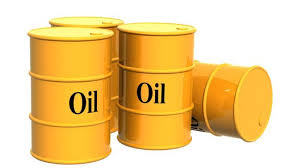
London — Oil prices touched a one and a half month high on Friday amid signs demand for crude was picking up, with China reporting increased refinery runs and rounding out a week of bullish news on the supply front.
West Texas Intermediate (WTI) oil was up 68 cents, or 2.47%, at $28.24 a barrel at 1216 GMT, after reaching $28.75, its highest since early April. WTI jumped 9% in the previous session.
Brent crude was up 56 cents, or 1.8% at $31.69 a barrel, after touching $32.50, the highest since April 13. Brent rose nearly 7% on Thursday.
Both contracts are on track for a third consecutive week of gains.
“Further signs of demand recovery together with deepening production cuts from OPEC+ as well as shut-ins and natural declines by non-OPEC+ is helping oil prices to recover,” Bjarne Schieldrop, chief SEB commodities analyst, said.
Amid supply cuts by the Organization of the Petroleum Exporting Countries (OPEC) and other major producers, bright spots are also emerging on the demand side. Data released on Friday showed China’s daily crude oil use rebounded in April as refineries ramped up operations.
The market mood remains less than euphoric, though, with the coronavirus pandemic far from over and new clusters emerging in some countries where lockdowns have been eased.
Oil prices rise on dip in U.S. crude stockpiles and IEA data
“Oil prices have been up significantly since yesterday thanks to a better assessment of the situation by the International Energy Agency (IEA),” Commerzbank said in a note.
The IEA expects global crude inventories to fall by about 5.5 million barrels per day (bpd) in the second half of this year.
It also expects oil demand this year to fall by 8.6 million bpd, which is a smaller decline – by 690,000 bpd – than it forecast last month. It expects non-OPEC supply to fall by 3.2 million bpd.
Barclays raised its forecasts for Brent and WTI by $5-$6 a barrel for 2020 and by $16 a barrel for 2021. It now sees Brent prices averaging $37 a barrel and WTI at $33 this year. For 2021, the bank expects Brent and WTI prices to average $53 and $50 per barrel, respectively.
“The sheer size and speed of the disruption and associated inventory overhang will take time to get fully absorbed, in our view,” Barclays analyst Amarpreet Singh said in a note.
Meanwhile U.S. crude inventories fell unexpectedly for the first time since January, the Energy Information Administration said on Wednesday.
On the production side, record cuts of nearly 10 million bpd by OPEC and associated producers – collectively known as OPEC+ – have kicked in for May and June, with producers Saudi Arabia, Kuwait, and the UAE pledging to cut beyond their commitments.
Oman said on Friday that it is considering cutting output further in June as well.



